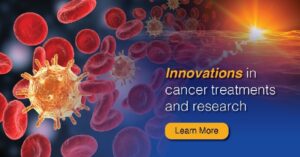
Drug addiction is a pervasive issue affecting individuals and communities across Massachusetts. Fortunately, the state offers a diverse range of drug rehabilitation programs designed to address the unique needs and circumstances of individuals struggling with addiction. From inpatient and outpatient treatment to specialized programs for dual diagnosis and medication-assisted treatment, Massachusetts provides tailored rehabs in massachusetts options to support individuals on their journey to recovery.
Understanding Drug Addiction:
Before exploring the various drug rehab options available in Massachusetts, it’s essential to understand the nature of drug addiction itself. Drug addiction is a chronic, relapsing condition characterized by compulsive drug-seeking and use despite adverse consequences. It affects individuals physically, psychologically, and socially, often leading to profound disruptions in their lives and relationships. Addiction can stem from a variety of factors, including genetic predisposition, environmental influences, trauma, and mental health issues.
The Importance of Tailored Rehabilitation Programs:
Each individual struggling with drug addiction has a unique set of circumstances, challenges, and treatment needs. Therefore, it’s crucial to offer tailored rehabilitation programs that address these specific factors comprehensively. Tailored programs take into account factors such as the type and severity of addiction, co-occurring mental health disorders, socioeconomic status, cultural background, and personal preferences, ensuring that individuals receive the most effective and appropriate care for their needs.
Types of Tailored Rehabilitation Programs:
Inpatient Rehabilitation:
Inpatient rehabilitation programs provide a highly structured and intensive level of care for individuals with severe addiction or those who require a stable and supportive environment to achieve sobriety. Patients reside at the facility full-time and receive round-the-clock supervision, medical care, therapy, counseling, and support. Inpatient rehab offers a safe and structured environment conducive to healing and recovery, allowing individuals to focus solely on their treatment without distractions or triggers from the outside world.
Outpatient Rehabilitation:
Outpatient rehabilitation programs offer flexibility for individuals who cannot commit to full-time residential care or who have completed inpatient treatment and require ongoing support. Patients attend therapy sessions, counseling appointments, and support groups on a part-time basis while residing at home or in a sober living environment. Outpatient rehab allows individuals to maintain their daily responsibilities while receiving essential treatment and support, making it an ideal option for those with mild to moderate addiction or logistical constraints.
Dual Diagnosis Treatment:
Many individuals struggling with drug addiction also experience co-occurring mental health disorders such as depression, anxiety, PTSD, or bipolar disorder. Dual diagnosis treatment programs address both addiction and underlying mental health issues simultaneously, providing comprehensive care and support to individuals with complex treatment needs. These programs integrate evidence-based therapies, medication management, and counseling to address the interconnected nature of addiction and mental health disorders effectively.
The Importance of Dual Diagnosis Treatment:
Dual diagnosis refers to the presence of both a substance use disorder and a mental health disorder in an individual. It is estimated that a significant proportion of individuals struggling with drug addiction also experience co-occurring mental health disorders such as depression, anxiety, PTSD, or bipolar disorder. Addressing both conditions simultaneously is crucial for achieving successful treatment outcomes, as untreated mental health issues can exacerbate addiction and vice versa. Dual diagnosis treatment programs recognize the interconnected nature of addiction and mental health disorders and provide tailored interventions to address both aspects of the individual’s condition effectively.
Key Components of Dual Diagnosis Treatment Programs:
Integrated Treatment Approach:
Dual diagnosis treatment programs adopt an integrated approach to care, combining evidence-based therapies for addiction and mental health disorders into a comprehensive treatment plan. These programs are staffed by multidisciplinary teams of healthcare professionals, including addiction specialists, psychiatrists, therapists, and counselors, who collaborate to address the diverse needs of individuals with co-occurring conditions. Integrated treatment ensures that both addiction and mental health issues are addressed concurrently, leading to better treatment outcomes and long-term recovery.
Medication Management:
Medication management is an essential component of dual diagnosis treatment, particularly for individuals with severe or persistent mental health symptoms. Psychiatric medications, such as antidepressants, mood stabilizers, and antipsychotics, may be prescribed to alleviate symptoms of depression, anxiety, psychosis, or mood disorders. Medications are carefully monitored and adjusted as needed to optimize therapeutic benefits and minimize side effects. Additionally, medication-assisted treatment (MAT) may be utilized for individuals struggling with opioid or alcohol addiction to help manage cravings and withdrawal symptoms.
Behavioral Therapy:
Behavioral therapy forms the cornerstone of dual diagnosis treatment, helping individuals develop coping skills, address maladaptive behaviors, and learn strategies for managing cravings and triggers. Cognitive-behavioral therapy (CBT), dialectical behavior therapy (DBT), and motivational interviewing are among the evidence-based therapies commonly used in dual diagnosis treatment programs. These therapies explore the underlying thoughts, emotions, and behaviors contributing to addiction and mental health disorders, empowering individuals to make positive changes and sustain long-term recovery.
Supportive Services:
In addition to clinical interventions, dual diagnosis treatment programs offer a range of supportive services to address the practical, social, and emotional needs of individuals in recovery. These services may include case management, peer support groups, life skills training, vocational rehabilitation, and family therapy. Supportive services help individuals build a strong support network, access community resources, and navigate challenges on their journey to recovery.
Medication-Assisted Treatment (MAT) Programs:
Medication-assisted treatment programs combine medications such as methadone, buprenorphine, or naltrexone with counseling and behavioral therapies to treat opioid addiction. MAT helps individuals manage withdrawal symptoms, reduce cravings, and prevent relapse, allowing them to focus on rebuilding their lives and maintaining sobriety. MAT programs are tailored to meet the individual needs of each patient, with medications and treatment plans adjusted based on progress and response to treatment.
Holistic and Alternative Therapies:
In addition to traditional therapy and medication-based approaches, many drug rehab programs in Massachusetts offer holistic and alternative therapies to support the recovery process. These may include yoga, meditation, acupuncture, art therapy, music therapy, equine therapy, and adventure therapy. Holistic therapies address the physical, emotional, and spiritual aspects of addiction, promoting overall well-being, stress reduction, and personal growth.
Conclusion:
Tailored rehabilitation programs play a crucial role in helping individuals overcome drug addiction and achieve lasting sobriety. By offering a range of treatment options, including inpatient and outpatient rehab, dual diagnosis treatment, medication-assisted treatment, and holistic therapies, Massachusetts provides individuals with the support and resources they need to embark on the journey to recovery. With personalized care tailored to their specific needs and circumstances, individuals in Massachusetts can find hope, healing, and a path towards a brighter future free from addiction.
RELATED POST: Behind the Scenes of Celebrity Wellness: Habits You Never Knew

